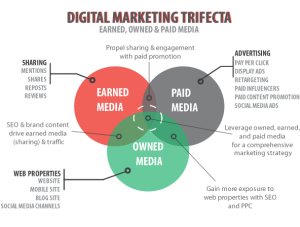 The latest news story on reviews comes from Staten Island, NY, where a woman who allegedly libeled a local contractor on Yelp was ordered by a judge to pay $ 1,000 towards reparations. The judge agreed that the terms she used, such as “con artist,” “scam,” and “rob,” imply criminal activity and is libelous. Of course, after the verdict, the business owner spoke up about how these online reviews killed his reputation. The woman has vowed to appeal the verdict, and feels she has every right to voice her displeasure with the contractors service online.
The latest news story on reviews comes from Staten Island, NY, where a woman who allegedly libeled a local contractor on Yelp was ordered by a judge to pay $ 1,000 towards reparations. The judge agreed that the terms she used, such as “con artist,” “scam,” and “rob,” imply criminal activity and is libelous. Of course, after the verdict, the business owner spoke up about how these online reviews killed his reputation. The woman has vowed to appeal the verdict, and feels she has every right to voice her displeasure with the contractors service online.
I realize that sensational stories like this get headlines, and I’m afraid that it will cause business owners to dig their heels in further in thinking that online conversations with customers is a bad idea. I’d like to offer an unconventional view of this story.
- Would you take stock in the customer’s writeup? She couldn’t write a complete sentence, had significant spelling errors, and would write in all capital letters for portions of her review. She self-professed to want to “ruin” this person’s business. This is a wildly extreme position for a consumer to take!When we speak with business owners, they almost always want to talk about the consumer that is never satisfied. No matter how much above and beyond the business owner goes, this particular consumer won’t be happy, and will give a negative review no matter what.These consumers make up an extremely small percentage of customers, and most people are going to ignore them, even online. Simply reading her review in the article made me dismiss what she had to say. How many “reasonable” customers would be impacted by a review like hers? Very few.
- Did anybody notice that the contractor had to pay a fine because he didn’t have the correct licenses to perform the work? It’s interesting that this was buried in the article and not expanded on at all. Was this purposeful by the contractor or an oversight? Does it give credence to the customers complaints or was there something else between them?
- Whatever happened to the saying we used to recite as kids – “sticks and stones may break my bones, but words will never hurt me!” Business owners either care about their business and their customers or they don’t. If somebody says something about you in person that isn’t true, you correct them, you don’t sue them! The same should be so online. This type of story isn’t a “valid” review. It’s a personal issue between the business and their customer. I had a similar situation with a contractor, and I took them to small claims court to get my deposit back. I also tell all my friends not to use this contractor. I do most of this offline. If you are a conscientious business, you have plenty of happy customers that should be willing to say nice things about you. And you do care about feedback, positive or otherwise. Suing somebody to remove a review actually gives me serious pause about that business. The owner should simply reply to bad online reviews and explained what they did and that they’d be willing to address the issue with the customer.
On the one hand, it’s great that we can debate the meaning of freedom of speech, and these types of cases get a lot of press because it pushes our legal understanding to the limit. But beyond that, stories like these are simply beef between two parties that becomes public because one side decides to take it public. And even that’s ok – this consumer should have given this guy one star reviews on every site she could think of. And the business owner should have responded. Business owners need to realize that people that are unhappy are indeed talking about you. They are telling all their friends not to use you. So, when somebody decides to tell you they are unhappy, don’t lose the opportunity to share your side of the story.
Digital & Social Articles on Business 2 Community(102)
Report Post






